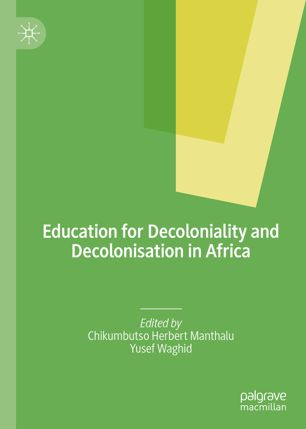

Most ebook files are in PDF format, so you can easily read them using various software such as Foxit Reader or directly on the Google Chrome browser.
Some ebook files are released by publishers in other formats such as .awz, .mobi, .epub, .fb2, etc. You may need to install specific software to read these formats on mobile/PC, such as Calibre.
Please read the tutorial at this link. https://ebooknice.com/page/post?id=faq
We offer FREE conversion to the popular formats you request; however, this may take some time. Therefore, right after payment, please email us, and we will try to provide the service as quickly as possible.
For some exceptional file formats or broken links (if any), please refrain from opening any disputes. Instead, email us first, and we will try to assist within a maximum of 6 hours.
EbookNice Team

Status:
Available4.7
6 reviewsThis book focuses on understandings of higher education in relation to notions of decoloniality and decolonization in southern Africa. The volume draws on a range of case studies in multiple politico-cultural contexts on the African continent, and examines some of the challenges to be overcome in order to achieve education for decolonization and decoloniality. Acknowledging that patterns of exclusion, inequality and injustice are still prevalent in the African higher education landscape, the editors and contributors proffer bold attempts at democratizing education and examine how to cultivate just, equal and diverse pedagogical relations. Featuring case studies from South Africa, Zambia, Malawi, and Zimbabwe, the authors and editors examine how higher education can be further democratized and transformed along the lines of equality, liberty and recognition of diversity. This hopeful and bold collection will be of interest to scholars of decoloniality and decolonization in higher education, as well as higher education in southern Africa more specifically.